Watch adorable 10-week-old tiger cubs explore jungle habitat for first time
This is the moment three rare Sumatran tiger cubs made their public debut at a Sydney zoo.
The boisterous 10-week-old siblings explored their jungle habitat in their first public appearance at Taronga Zoo on Friday, March 22.
The rare cubs, who belong to the most endangered subspecies of tiger in the world, were born on January 17 to first-time mother Kartika.
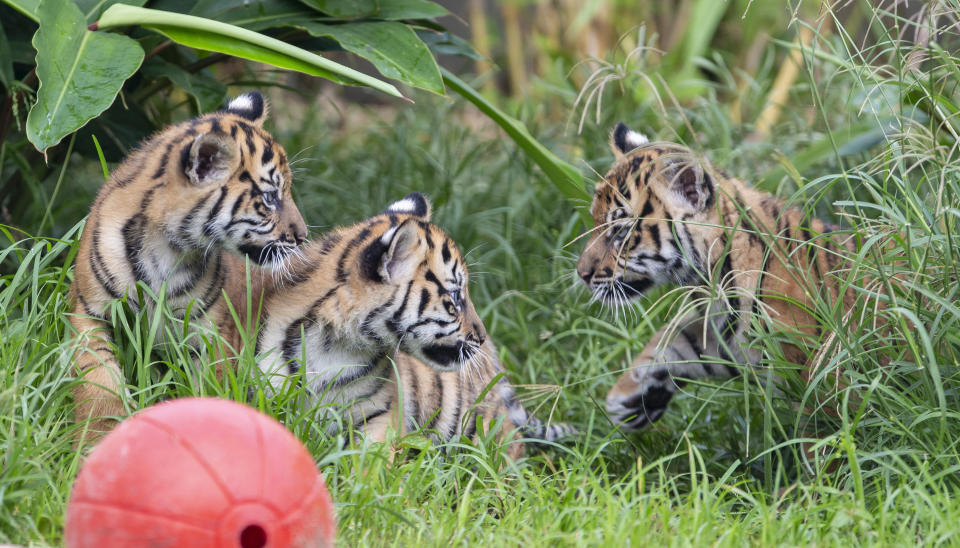
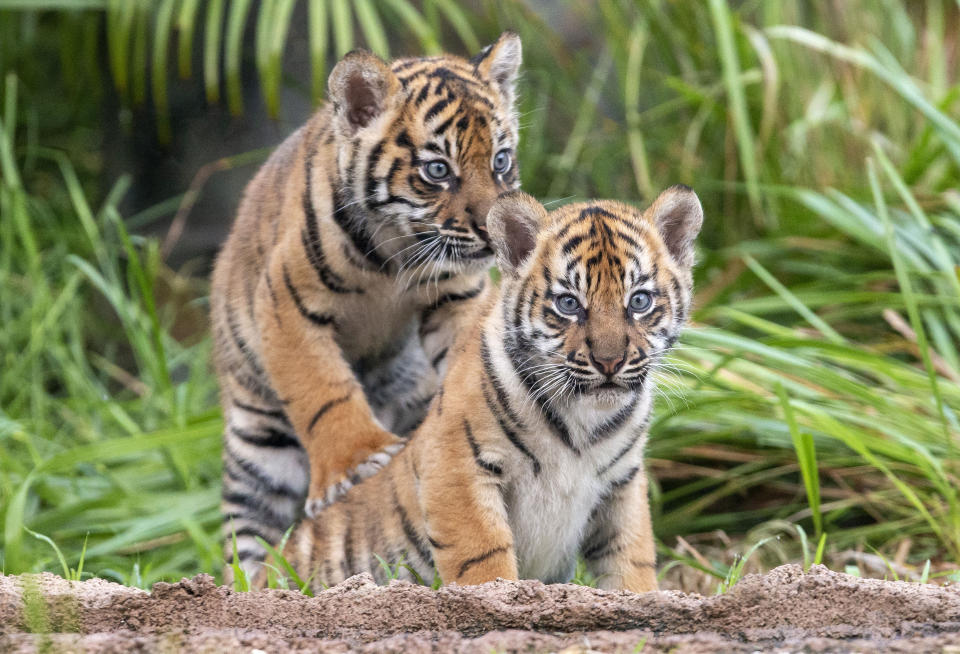
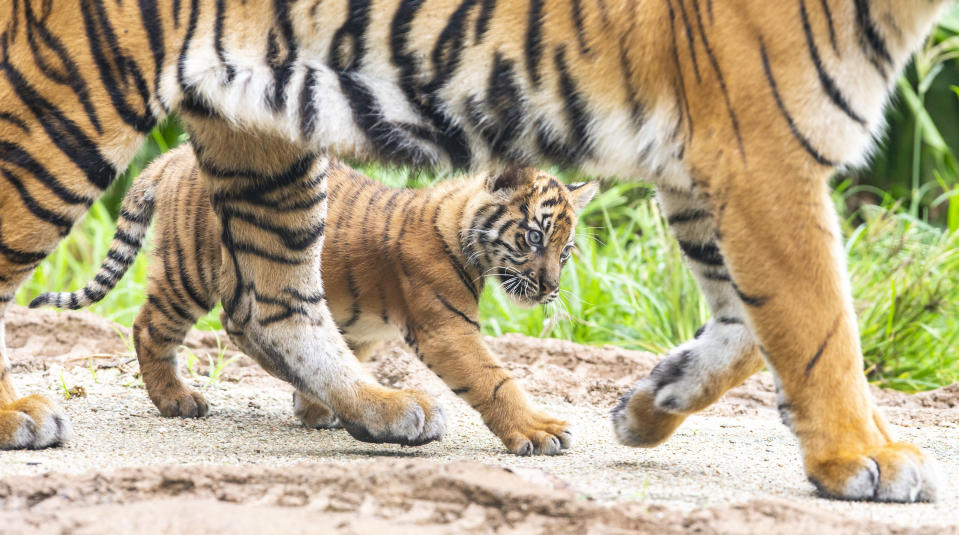

Read more: Man guilty of murdering girlfriend’s toddler by poisoning her to cover up beatings
England’s oldest man reveals his secret to long life as he celebrates 111th birthday
Watch: Giant 210ft fatberg is finally cleared from Devon sewer after two months
The female cubs were named Mawar, which means Rose in Indonesian, and Tengah Malam, which means Midnight. The male’s name is Pemanah, or Archer.
Taronga Zoo manager Mandy Everett said the critically endangered tiger subspecies are under increasing pressure as their jungle habitat shrinks.
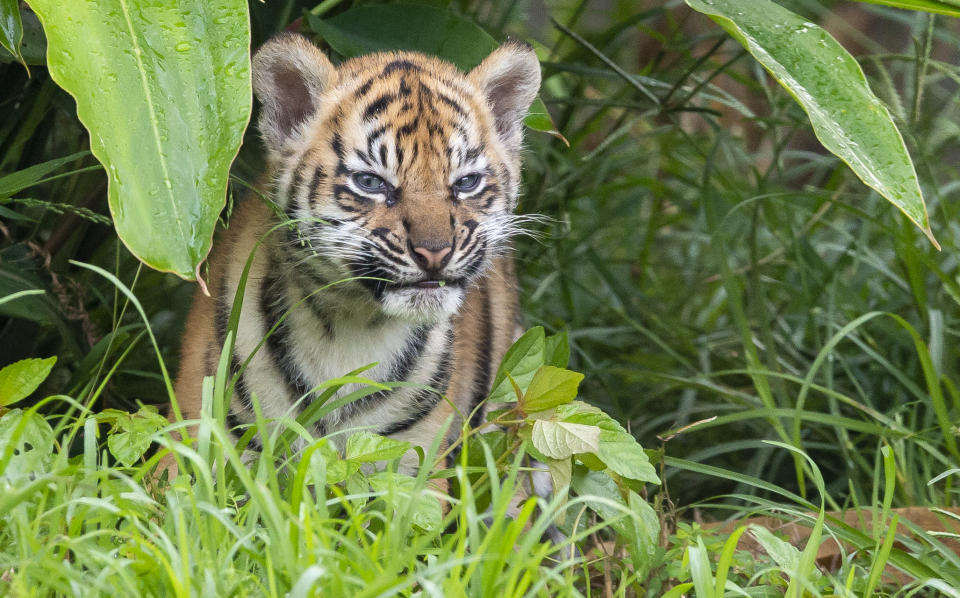
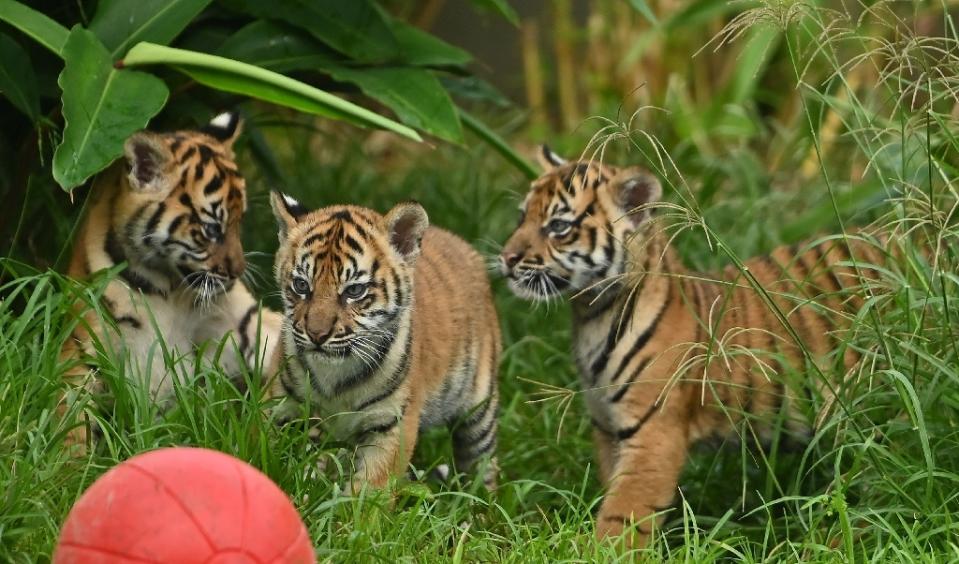
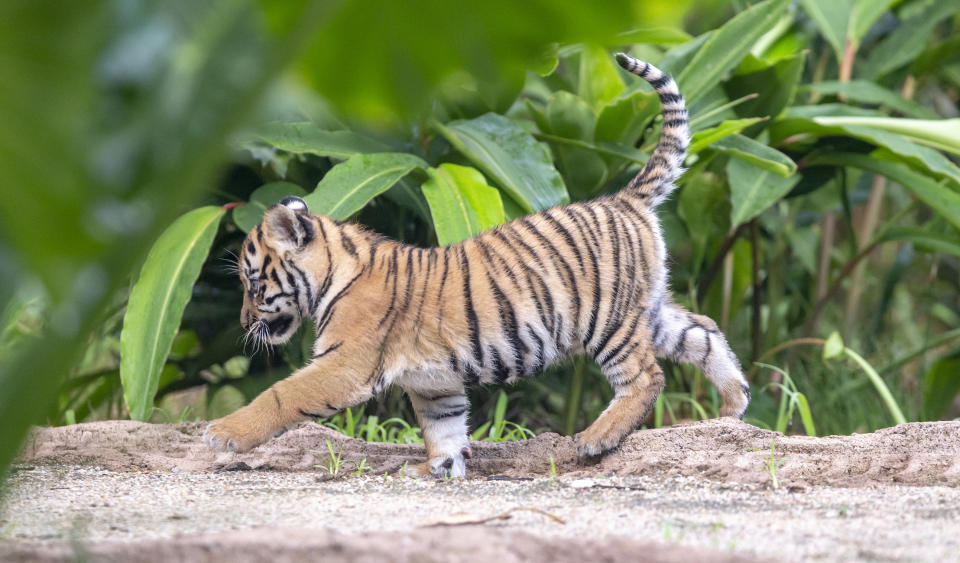

She said that there are only around 350 of their species left in the wild, adding: “The threats that they’re facing in the wild are habitat loss through deforestation and a lot of that’s due to palm oil plantation.”
She said the zoo’s cubs are likely to grow up to become part of breeding programmes in other zoos around the world.
Pics: Reuters/AFP/APwill

 Yahoo News
Yahoo News 

